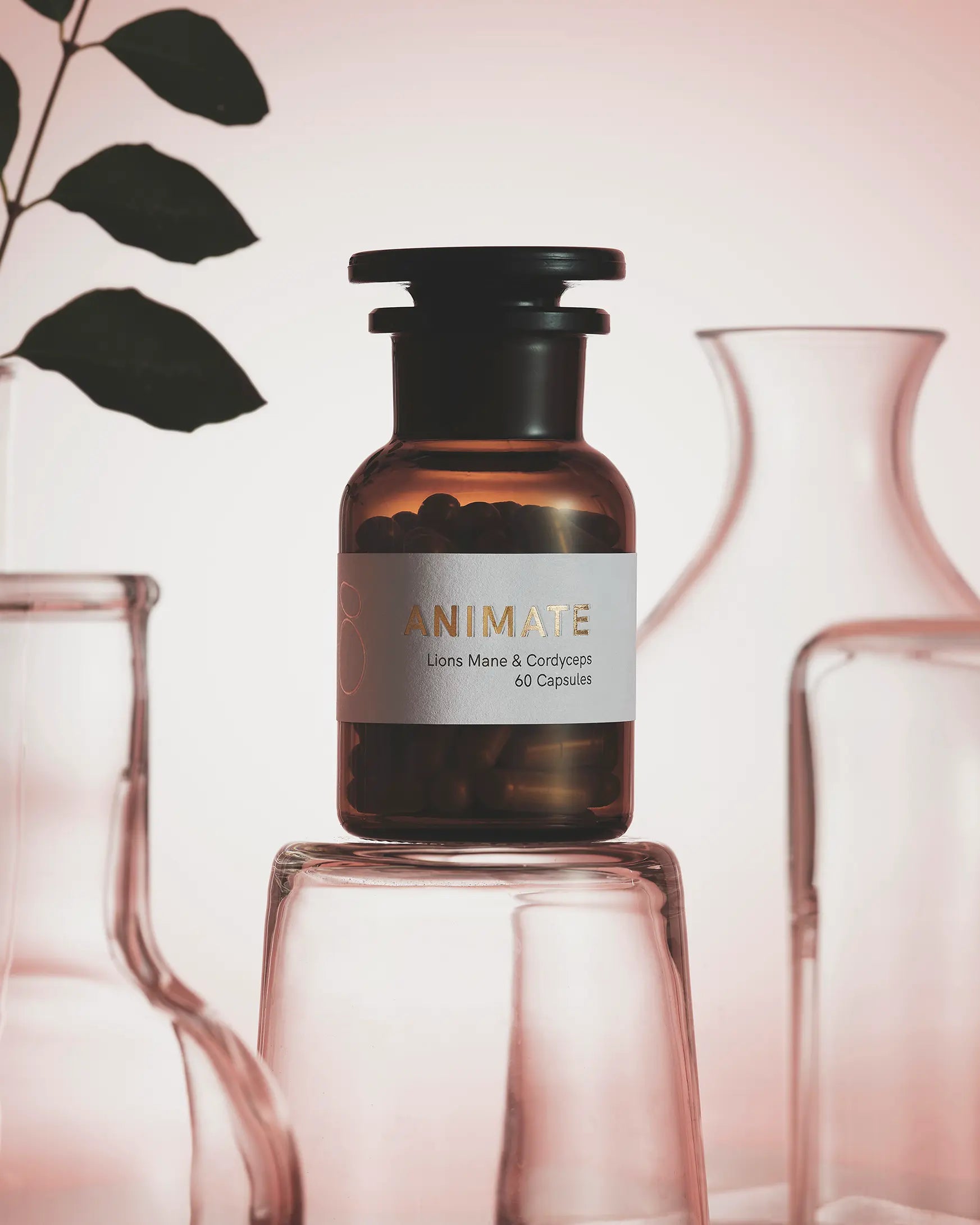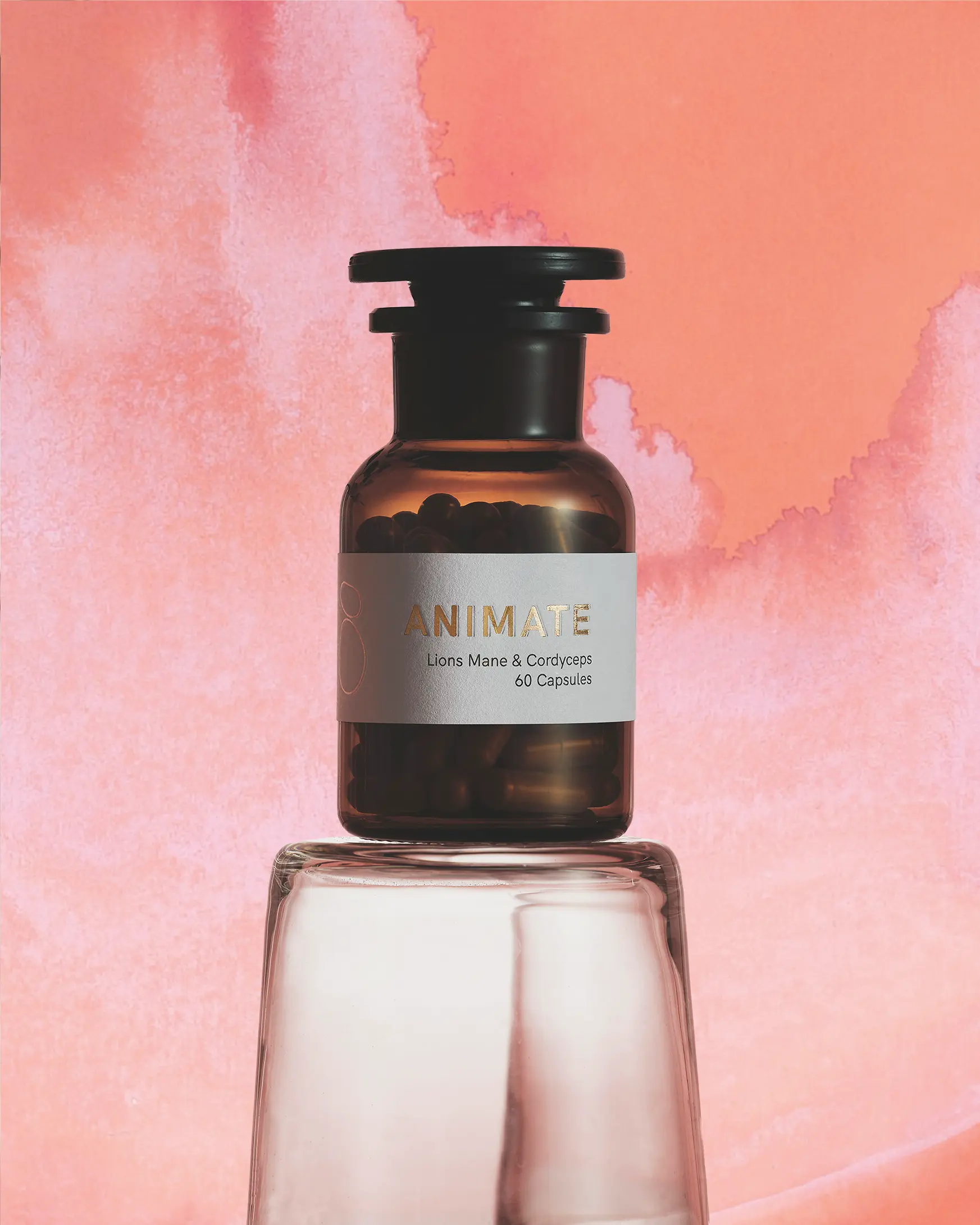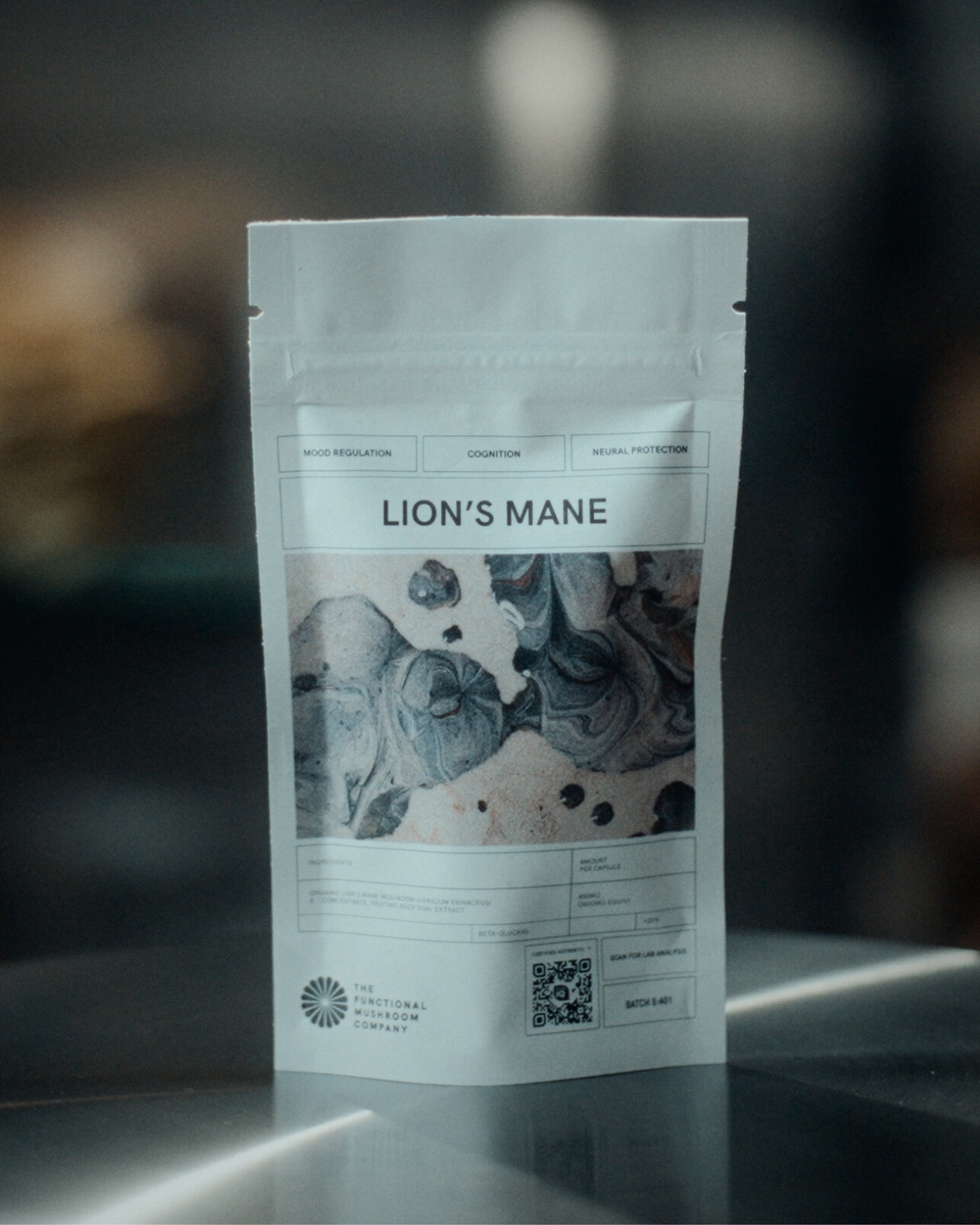
Lion's Mane
Mushroom Index
A natural nootropic - shown to improve memory, focus and mood while providing protection against age-related cognitive decline.

Overview
LION'S MANE / HERICIUM ERINACEUS
Lion’s Mane, also known as the Mountain Priest, is an attractive, coral-like mushroom native to parts of Asia, North America and Europe. It has a spectrum of health benefits, and has recently generated particular interest in clinical circles for its neuroregenerative potential.
Indeed, human studies point to a number of nootropic effects - improving memory, focus and mood - and there is strong evidence showing that regular consumption provides protection against age-related cognitive decline.
Meanwhile, the presence of a range of different beta-glucans and other cell wall polymers, appear to provide beneficial effects on gastritis and ulcers, in conjunction with other anti-inflammatory, antioxidant, and immune-stimulating properties.
Other names:
- Yamabushitake - “Mountain Priest” in Japan
- Hóu Tóu Gū - “Monkey Head Mushroom” in China
- Pom Pom Blanc - “White Pom Pom” in France
Benefits

Improves memory and cognitive function

Supports mood regulation

Helps counteract gastritis and ulcers

Balances HDL “good” and LDL “bad” cholesterol

Provides anti-Diabetic support

History of Use
Lion's Mane / HERICIUM ERINACEUS
In Traditional Chinese Medicine (TCM), Buddhist monks are said to use Lion’s Mane as a tea for enhancing brain power and heightening focus during meditation. More broadly, TCM texts recommend Lion’s Mane as a tonic for strengthening the five internal organs, promoting good digestion - specifically for gastric and duodenal ulcers and chronic gastritis.
In fact, one of the most popular Lion’s Mane products in China is a biscuit that’s sold to aid with stomach issues. Lion’s Mane is not only one of the most intriguing medicinal mushrooms, but a highly prized and delicious culinary species.
With a taste redolent of lobster or crab, it’s long been used as a meat alternative in China and other parts of Asia.
Lion's Mane / HERICIUM ERINACEUS
Key Active Compounds

Selected Clinical Studies
Lion's Mane / HERICIUM ERINACEUS
1. Improving effects of the mushroom Yamabushitake (Hericium erinaceus) on mild cognitive impairment: a double-blind placebo-controlled clinical trial (2008)
Conditions: Involved 30 aging people, using 2 grams fruiting body powder daily
Effect: Improvement of cognitive functions. The effect disappeared after discontinuation.
2. Reduction of depression and anxiety by 4 weeks Hericium erinaceus intake (2010)
Conditions involved 30 menopausal women using 2 grams fruiting body powder daily
Effect: Improvement in mood, anxiety and sleep quality
3. Improvement of cognitive functions by oral intake of Hericium erinaceus. (2019)
Conditions: 31 aging people taking 3 grams fruiting body powder daily (follow-up of the 2008 case study)
Effect: Improvement of cognitive functions
Lion's Mane Supplements


Animate | Focus • Energy • Mood


Organic Lion's Mane Mushroom Extract | Mood • Cognition • Neuroprotection



